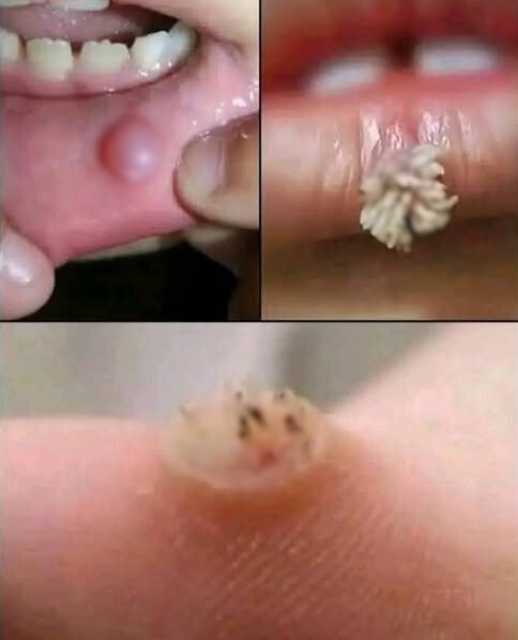
HPV, or Human Papillomavirus, is a common virus with over 100 strains. While some cause warts, others can lead to cancers like cervical or throat cancer. It spreads through direct contact, not necessarily sexual, and many people carry it without knowing.
What Do HPV Warts Look Like?

HPV warts can appear in many forms depending on where they show up:
-
Mouth or lip warts: Flesh-colored bumps, sometimes flat, other times raised and rough. In some cases, they cluster together and resemble a cauliflower.
-
Finger or hand warts: Small, round, with black pinpoints inside (these are clotted blood vessels). Can be mistaken for calluses or even splinters.
-
Inner cheek or gum warts: Smooth or slightly raised bumps that people often confuse with canker sores.
These warts don’t usually hurt, but they can itch, grow, or multiply over time.
How Does It Spread?

-
Touching an infected person’s skin or a contaminated surface
-
Sharing personal items like lip balm, razors, towels, or makeup
-
Biting your nails or picking at your skin when you have small cuts
-
Walking barefoot in public showers or locker rooms
-
Using unclean tools at nail salons or barber shops
You don’t need direct contact with a wart to get the virus. Sometimes, all it takes is touching something an infected person touched.
What Should You Do If You Notice These Bumps?

Here’s what you should do:
-
Avoid touching or scratching the area – this can spread the virus.
-
Wash your hands regularly, especially if you’ve touched the area by accident.
-
Don’t share personal items, even with close friends or family.
-
Visit a dermatologist or doctor – only a professional can confirm if it’s HPV and advise on treatment.
Treatment options may include topical creams, cryotherapy (freezing), laser removal, or minor surgery.
How to Prevent HPV Warts

Prevention is always better than treatment. Here are some simple tips to reduce your risk:
-
Don’t share personal hygiene products like razors, towels, or toothbrushes
-
Disinfect shared surfaces in gyms, bathrooms, and salons
-
Cover cuts and scratches to avoid giving the virus a way in
-
Keep your immune system strong with enough sleep, healthy food, and exercise
-
Get the HPV vaccine – especially recommended for teens and young adults, but even some adults can still benefit
Final Thoughts
HPV is more common than many think and often shows no clear symptoms. A harmless-looking bump might be a warning sign. If you notice something unusual, especially around your lips, hands, or mouth, don’t ignore it. Stay aware, seek advice early, and consult a doctor when needed. Awareness is key to keeping yourself and others safe.




